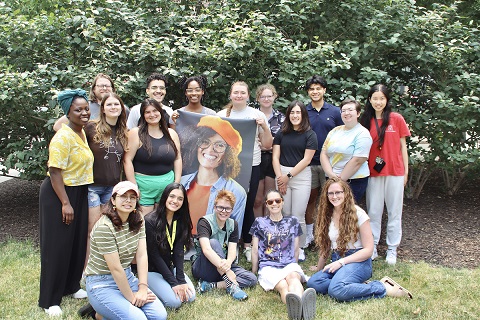Maurine Neiman
Research summary
Evolution of sexual reproduction and ploidy level
Why is sexual reproduction so common?
Sexual females produce both sons and daughters, while asexual females make only daughters. Because only females produce offspring, this "cost of males" predicts that sex should be rare because asexual females will leave many more descendants than will sexual females. In reality, however, sex predominates.
Why sex is so common despite its costs remains unclear and is considered one of the most important unanswered questions in evolutionary biology. The central importance of sexual reproduction to biology means that solving the sex problem will require insights from all levels from biological organization. Accordingly, our approach to studying sex is very diverse, ranging from ecosystem and behavioral ecology to evolutionary genetics, genomics, and physiology.
Because sex is distinguished from asexual reproduction by the production of genetically variable offspring, a deeper understanding of the benefits of sex will help illuminate the value of preserving genetic diversity within and among populations, species, and ecological communities. More broadly, our research program is relevant to scientists who use our snail study system as a model for ecotoxicology, host-parasite coevolution, and the causes and consequences of biological invasions. Our lab group is also very committed to training, mentoring, and community engagement, and we are involved in a variety of such efforts, from an award-winning program in support of community-focused science engagement to regular collaborations with biology students at a local high school and the development and testing of a genomics module for a national high school computer science curriculum to our central role in organizing the annual Iowa City Darwin Day celebration.
The Neiman Lab is committed to creating an inclusive and equitable lab space that celebrates human diversity. We recognize the barriers that members of historically marginalized groups face both in society and in science. We are committed to dismantling these barriers by listening and educating ourselves and by taking appropriate actions when necessary.
Graduate students
Prospective graduate students with interests in evolutionary biology and especially the evolution and ecology of sex, ploidy, or biological invasions who would like to consider joining my lab should email me (maurine-neiman@uiowa.edu) to discuss the possibility of applying to the graduate program.
Selected images



- Evolution
